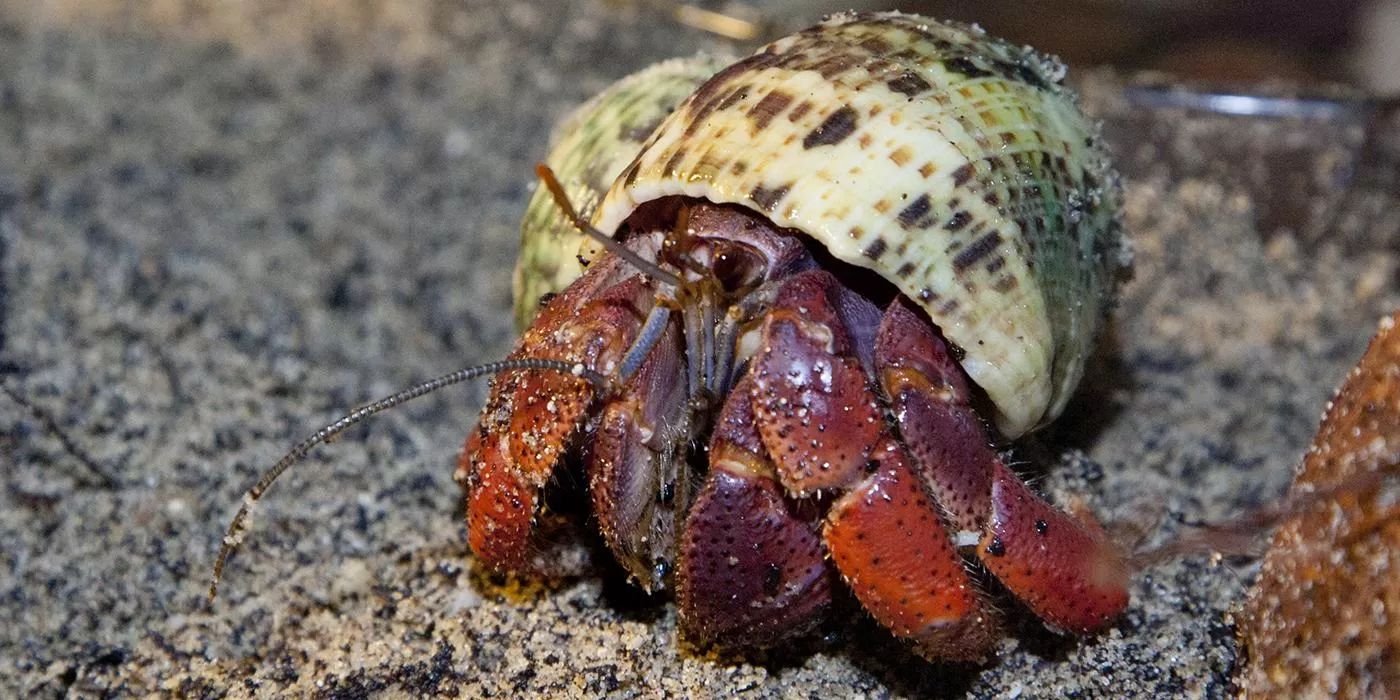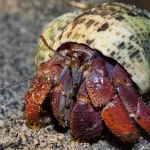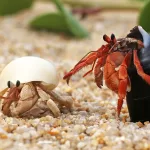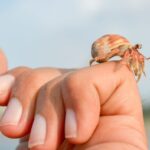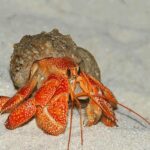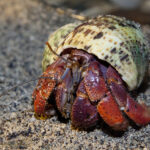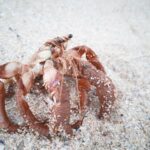Feeding your hermit crab is a critical aspect of responsible pet ownership. These fascinating crustaceans have specific dietary needs that must be met to ensure their health and well-being. In this post, we’ll explore the dos and don’ts of feeding your hermit crab, providing essential guidance to help you keep your pet happy and thriving.
Dos
- Offer a Balanced Diet: Hermit crabs are omnivorous scavengers, meaning they consume both plant and animal matter in the wild. Provide a varied diet that includes commercial hermit crab food, fresh fruits and vegetables, and occasional treats like dried shrimp or mealworms.
- Provide Fresh Foods: Offer fresh foods regularly to ensure your hermit crab receives essential nutrients. Fresh fruits and vegetables, such as carrots, apples, spinach, and broccoli, are excellent choices. Be sure to remove any uneaten food promptly to prevent spoilage and bacterial growth.
- Supplement Calcium: Calcium is crucial for maintaining healthy exoskeletons in hermit crabs. Offer calcium-rich foods such as cuttlebone, eggshells, or specialized calcium supplements. Calcium supplements can be sprinkled over their food or placed in the tank for them to nibble on as needed.
- Include Protein Sources: Protein is essential for hermit crab growth and overall health. Provide protein-rich foods like fish, shrimp, crab, and cooked poultry. You can also offer commercial hermit crab food formulated with protein sources such as fish meal or soy protein.
- Maintain Proper Hydration: Hermit crabs require access to both freshwater and saltwater to stay hydrated and maintain osmotic balance. Ensure that both water sources are available in their habitat at all times. Use dechlorinated water for freshwater and marine aquarium salt for saltwater.
- Monitor Feeding Habits: Pay attention to your hermit crab’s feeding habits and adjust their diet accordingly. Some individuals may have preferences for certain foods or require additional supplementation based on their health status.
Don’ts
- Avoid Toxic Foods: Certain foods can be toxic or harmful to hermit crabs. Avoid feeding them foods high in salt, sugar, caffeine, or seasonings. Toxic plants such as rhubarb, avocado, and onions should also be avoided.
- Limit Processed Foods: While commercial hermit crab food can be a convenient option, avoid relying solely on processed foods. These may lack essential nutrients found in fresh, whole foods. Use commercial food as part of a balanced diet rather than the sole source of nutrition.
- Watch for Pesticides: When offering fresh fruits and vegetables, ensure they are free from pesticides or chemical residues. Whenever possible, opt for organic produce or thoroughly wash and peel conventionally grown produce before feeding it to your hermit crab.
- Don’t Overfeed: Overfeeding can lead to obesity and health problems in hermit crabs. Offer food in moderation and remove any uneaten portions to prevent spoilage. A general guideline is to provide food amounts that can be consumed within 24 hours.
- Avoid Feeding Spoiled Foods: Spoiled or rotten foods can harbor harmful bacteria and toxins that can make your hermit crab sick. Always check foods for freshness before offering them to your pet, and promptly remove any food that shows signs of spoilage.
- Don’t Neglect Water Quality: Ensure that both freshwater and saltwater sources are clean and free from contaminants. Regularly clean and replenish water dishes to prevent bacterial growth and maintain water quality.
Conclusion
Feeding your hermit crab a balanced and nutritious diet is essential for their health and longevity. By following these dos and don’ts of hermit crab feeding, you can provide your pet with the proper nutrition they need to thrive. Remember to offer a varied diet, monitor feeding habits, and prioritize fresh, whole foods to ensure your hermit crab remains happy and healthy for years to come.
